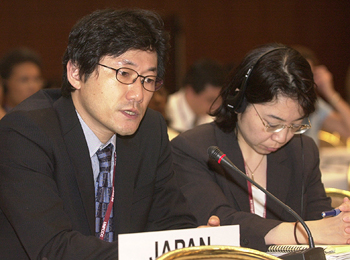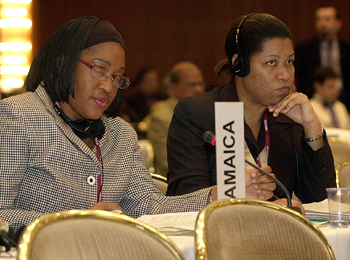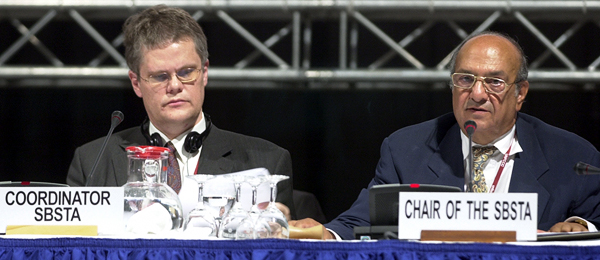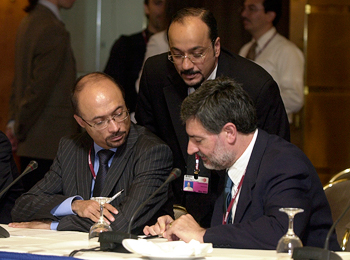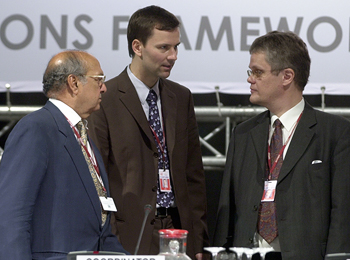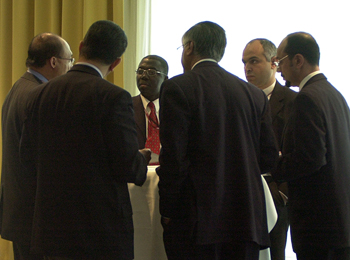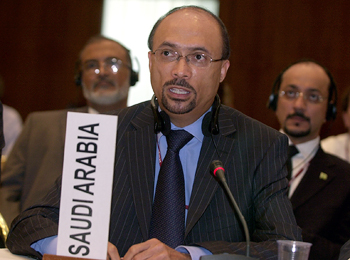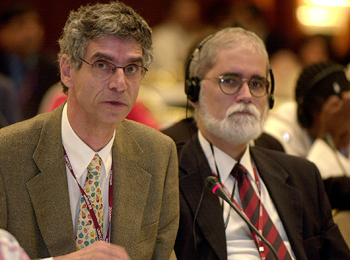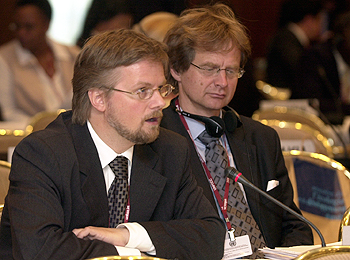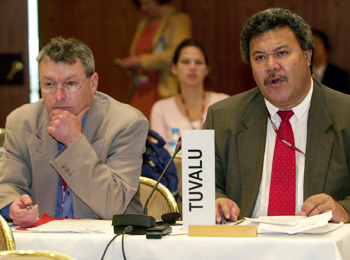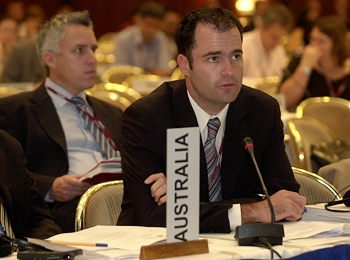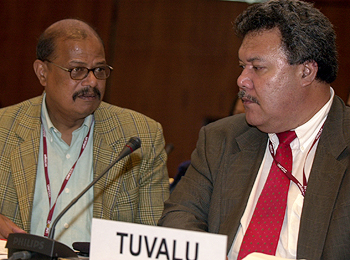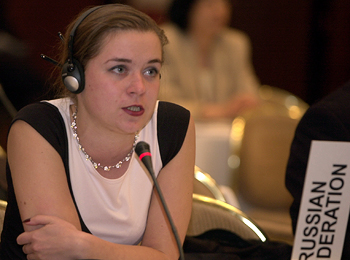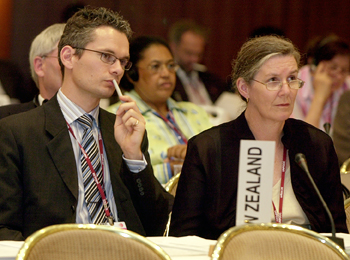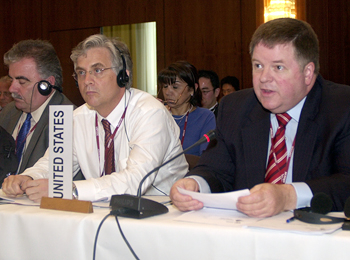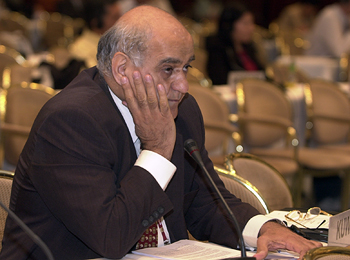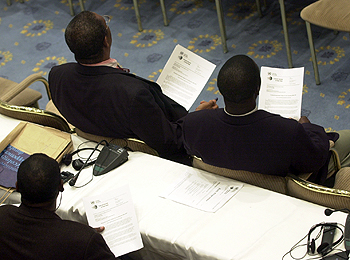United Nations Framework Convention on Climate Change:
Twenty-Second Session of the Subsidiary Bodies
and seminar of governmental experts (SB 22)
16-27 May 2005, Bonn, Germany
Our daily publication in English,
French, Spanish, and Japanese
|
Seminar of Governmental Experts ENB Summary
|
|
|
|
|
Síntesis del BNT del Seminario de Expertos Gubernamentales
|
|
|
|
|
Compte
Rendu du BNT du
Séminaire des
Experts
Gouvernementaux
|
|
|
|
| |
|
|
|
|
Compte Rendu
du BNT consacré
aux SB 22
|
|
|
|
|
| |
|
|
Síntesis del BNT
de OS 22
|
|
|
|
|
|
Friday, 27 May 2005 | Bonn, Germany
SB 22 concluded shortly after 4pm on Friday, when SBSTA Chair Abdullatif Salem Benrageb of Libya gaveled the final meeting to a close after delegates had adopted the SBSTA report of the session. SBSTA addressed issues relating to adaptation, mitigation, the development and transfer of technologies, and policies and measures among Annex I Parties. They also concluded their work on a range of other issues.
Earlier in the day, SBI had also completed its work, finalizing conclusions and decisions on issues such as programme budget for 2006-2007, which was finalized at a level that is $1.75 million less than had been proposed. After extensive discussions, delegates had also resolved two longstanding issues on SBI’s agenda on the Least Developed Countries (LDCs) and national communications from non-Annex I Parties (a group mostly developing country Parties). However, they were unable to conclude their work on the Special Climate Change Fund, which will be taken up again at SB 23.
At the final SBSTA plenary, UNFCCC Executive Secretary noted concerns over the programme budget. She also looked ahead to COP 11 and COP/MOP 1 in Montreal in late 2005, which she described as a “landmark” event.
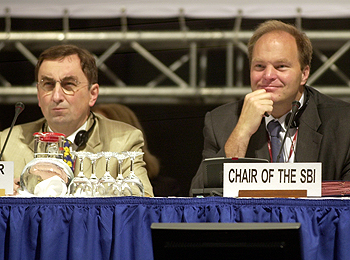
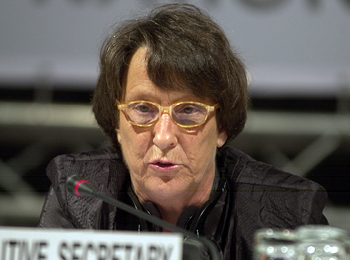
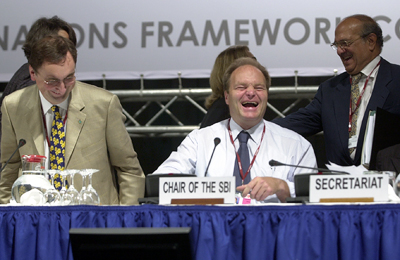
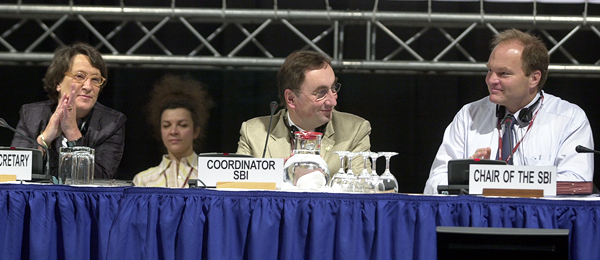
UNFCCC Executive Secretary Joke Waller-Hunter
Janos Pasztor (left), SBI Coordinator and SBI Chair Thomas Becker
Regarding the Budget: Jamaica, for the G-77/China, noted that it went along with the agreement with great duress, and that it was embarrassed to be forced to be a part of a decision that send the wrong signal to the global community about our commitment to the climate change proces
Japan noted that the budget was a good compromise, and that he appreciated the chair’s efforts to balance different interests, particularly regarding the extra work associated with the Kyoto Protocol and the impacts from the exchange rate. He continued that the budget was a good solution that will increase efficiency and economize, and should pave the way for further UNFCCC and Kyoto Protocol work in the coming years.
Halldor Thorgeirsson, SBSTA Coordinator with Chair Abdullatif Benrageb
Saudi Arabia said there was no consensus on the issue and that the brackets around the contentious text should remain and the issue discussions should be postponed.
Jose Romero (right), Switzerland, and facilitator of the consultations on bunker fuels speaking with Saudi Arabia about the text
Delegates from Iran, Saudi Arabia, India, and Nigeria, consulting on bunker fuels
Chair Abdullatif Benrageb (left), Frank Rauch Secretariat and Halldor Thorgeirsson, SBSTA Coordinator
Tuvalu expresses regret over the lack of political will to advance discussions on the Mauritius strategy.
Trigg Tally (left) with Daniel Reifsnyder, the US maintained that the agenda item on the Mauritius strategy had been fully discussed and that there was no need for future consultations.
Regarding text on emissions from fuel used for international aviation and maritime transport, Tatiana Dmiteieva, Russian Federation, supported the text.
Kuwait said there was no consensus on the text on bunker fuels and supported Saudi Arabia.
Newton Paciornik (left) and Jose Domingos Gonzalez Miguez, Brazil. Paciornik reported that the contact group on adjustments completed the technical guidelines on methodologies for adjustmentments under the Kyoto Protocol
Gerg Borsting (left) and Audun Rosland, Norway.
Borsting reported on the outcomes of the contact group on implications of the implementation of project activities under the CDM.
Australia, supported by New Zealand, the US and others proposed what it described as compromise text on a SBSTA process to take into account the Mauritius Strategy.
AOSIS, the EU and others argued that the language was not adequate.
|
_________________________________________________________________________________________________
|

Digimarc and the Digimarc logo are registered trademarks of Digimarc Corporation. The "Digimarc Digital Watermarking" Web Button is a trademark of Digimarc Corporation, used with permission.
|
|
|
|
|
|
|
Please e-mail the Digital editor should you have any questions regarding the content of this page
| Back to Linkages home | Visit IISDnet | Send e-mail to ENB |
© 2005, IISD. All rights reserved
|
|
|
|
|
|
|







